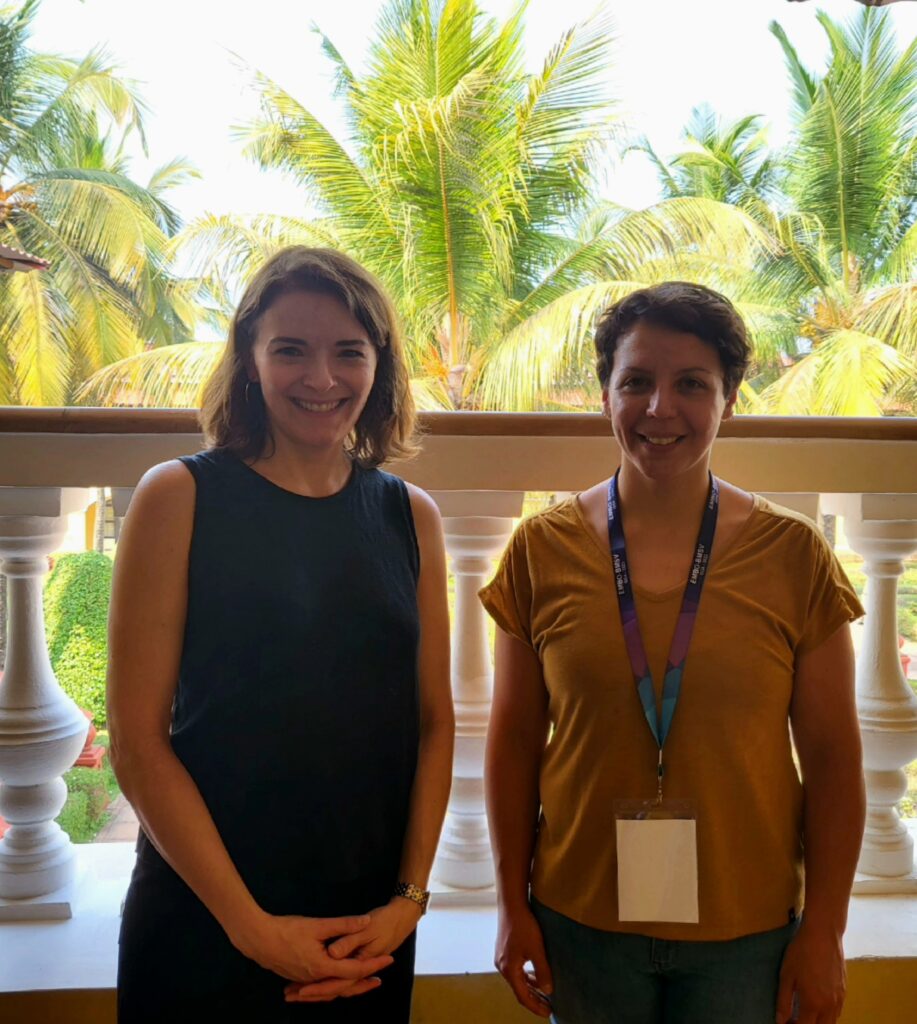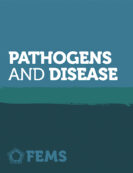FEMS Microbes Poster Prize: Sylvie Manuse
We send our congratulations to Sylvie Manuse, who won the best poster prize at the workshop “Bacterial morphogenesis, survival and virulence 2023”. This award is sponsored by our journal FEMS Microbes.

This EMBO Workshop was held on 6-10 February 2023 in Goa, India, and brought together experts in diverse domains of bacterial biology and focused on discussing frontier aspects of bacterial morphogenesis, survival and virulence.
Read our interview with Sylvie about her research below:
What is your current position, and what was your scientific journey to get there?
Since 2022, I have a position of Researcher at CNRS (French National Center for Scientific Research), in the MMSB unit (Molecular Microbiology and Structural Biochemistry) led by Dr. Christophe Grangeasse, in Lyon, France. This is also where my scientific journey began, as I did my PhD there. My thesis work was on the understanding of the regulation of the morphogenesis and cell division by serine/threonine phosphorylation in the human pathogen Streptococcus pneumoniae. After my thesis, I aimed to use my PhD experience looking at new exciting questions toward health public issues. With that in mind, I joined the Antimicrobial Discovery Center led by Pr. Kim Lewis at Northeastern University in Boston, USA, to carry out my postdoctoral work. During this five-year postdoc stay, I studied the formation of persisters in Escherichia coli and Staphylococcus aureus, which are subpopulations of cells highly tolerant to antibiotics that play a prominent role in the recalcitrance of chronic infections to antibiotherapy. Combining what I had been studying in PhD and Postdoc, I am currently investigating at MMSB the molecular mechanism of antibiotics escape in Streptococcus pneumoniae with a focus on the role of serine/threonine phosphorylation regarding antibiotic stress, and more generally how this bacterium grows and divides.”
Could you describe the research your poster covered?
The field of research of bacterial serine/threonine phosphorylation is fairly new, and while the advance of phosphoproteomics allowed to detect an increasing number of proteins that are phosphorylated in bacteria, biosensors able to report phosphorylation in single bacterial cells are still lacking, compared to the vast array of phosphorylation biosensors designed for eukaryotic cells. One of the big advantages of biosensors is to be able to analyze phosphorylation in a non-destructive way as this analysis can be done in living cells, while phosphoproteomics requires a destructive sample preparation. Biosensors also allow to study the heterogeneity of phosphorylation in a given cell population, as it could be the case in response to antibiotics stress.
The research that I presented with my poster are the preliminary results regarding the development of such sensors in the bacterium S. pneumoniae, which encodes a single serine/threonine kinase called StkP. This kinase is acknowledged as a central regulator of pneumococcal cell division and cell wall synthesis, but it is still not understood when and in which order StkP phosphorylates its substrates in the course of the cell cycle. We are thus currently lacking all the knowledge regarding the temporal dynamics of phosphorylation. To tackle this, I constructed different fluorescent hybrid proteins able to report StkP activity in single pneumococcal cells, or interacting specifically with its phosphorylated substrates. These sensors allow us to gain crucial insights about the dynamics of StkP substrates phosphorylation and pave the way toward a better understanding of pneumococcal cell division.”
What do you hope to focus your research on in the future?
The phosphorylation mediated by serine/threonine kinases has been associated to antibiotics escape including resistance, tolerance and persistence phenomenon in various bacterial species. These sensors represent thus a promising approach to study the contribution of phosphorylation in responding to antibiotic stress, which is what I would like to investigate in the near future.”
–
We use income from the FEMS Journals to fund grants, awards, and projects, and to support our knowledge sharing events and initiatives. Consider publishing your research with our journals to help the global microbiology community.
All but one of the FEMS journals are now fully open access (OA), with one journal, FEMS Microbiology Letters remaining a subscription journal with free-to-publish and OA options. Open access is key to supporting the FEMS mission of disseminating high quality research as widely as possible: when high quality, peer reviewed sound science is open access, anyone, anywhere in the world with an internet connection, can read it.







